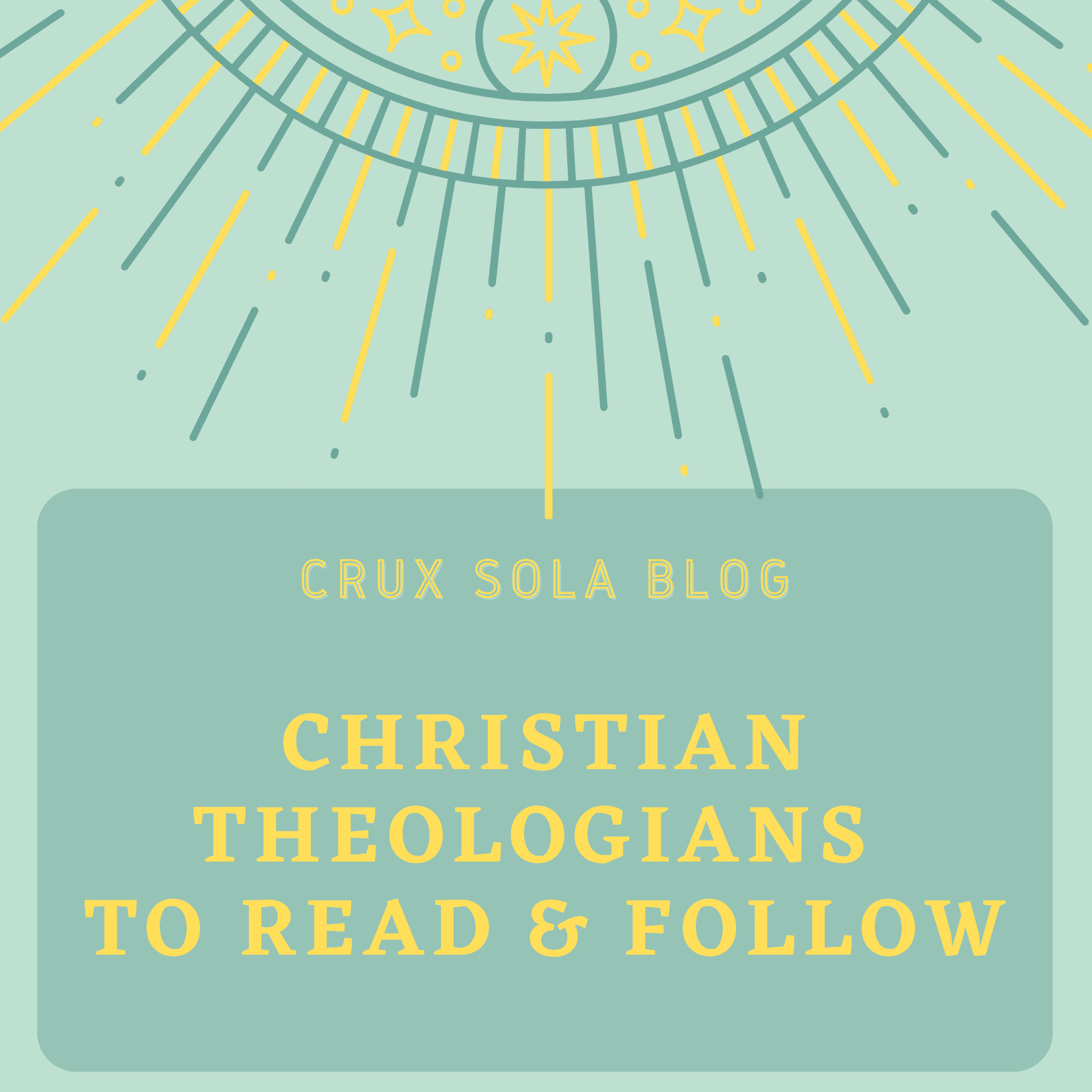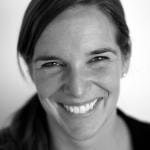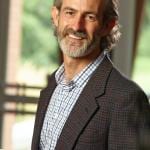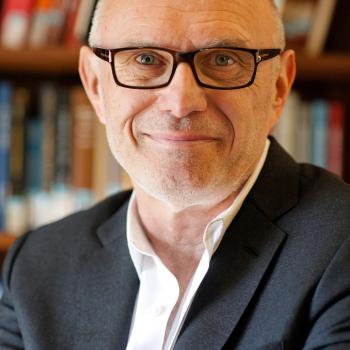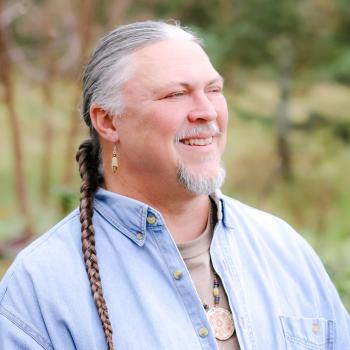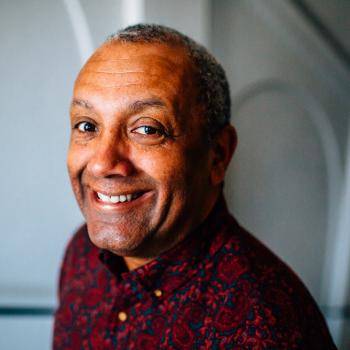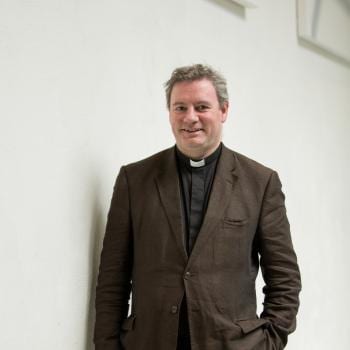J. Todd Billings, Gordon H. Girod Research Professor of Reformed Theology, Western Theological Seminary, Holland, MI
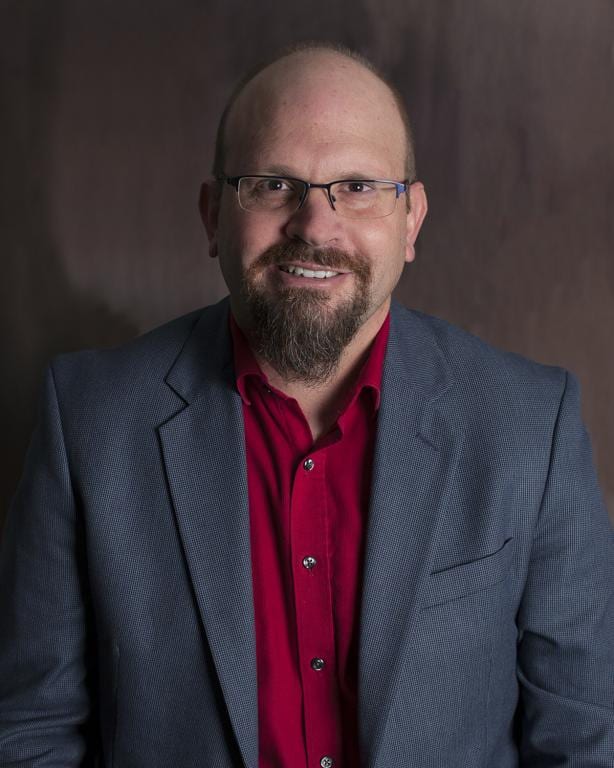
Why do you love teaching and researching about Christian theology?
I find teaching and researching theology to be a joyful act of worship. I’m constantly astonished by how scripture and the wide and deep Christian tradition is so much more peculiar, compelling, and wondrous than anything I could have come up with on my own! Indeed, the God who meets us through scripture, in prayer and worship, is radically different from a deity we would have imagined. At its best, Christian theology is a deeply refreshing and renewing enterprise. We live in a context in which many people want to say, “I determine who God is!” I have that instinct as well. But Christian theology can point to another way, one in which we are constantly on pilgrimage, deepening our fellowship with a God who comes to us both as a stranger and as the heart of our hope as mortal creatures.
An analogy here might be helpful. Some of the transformative experiences in my life have involved cross-cultural encounter, especially in several years of living in East Africa. Immersed in a different context that seems very strange to us at first, we learn to see, hear, smell, and taste new things; we enter into a world that we never could have anticipated, just thinking about it on our own, in our heads. That’s similar to discovering the “strange new world” of the Bible, and theology as the grateful and repentant hearing of God’s word in Christ. It brings us to a far-off country that we could not have anticipated independently. By the Spirit, our own idolatries are exposed. It’s a path of joy, of surprise, of grief, of pilgrimage.
What is one “big idea” in your scholarship?
Well, I sense two questions there. In terms of theological topics, while I’ve written on quite a few different theological topics, one of my recurrent tasks is to recover the quite astonishing biblical theme of “union with Christ” — one that involves justification and sanctification, an identity in Christ, life by the Spirit, life in the covenant people of God, life as baptized in the Triune name and feeding upon Christ in Word and Sacrament until our union with Christ brings us into the bright light of the new creation, in the age to come. Several of my books have focused specifically on union with Christ, and all of them explore implications of this multifaceted biblical and theological teaching.
My related “big idea” has to do with how I do theology. I want to show how scripture is so much deeper and more nourishing than we usually assume, and how historic Christian orthodoxy is actually a wide and spacious land, one full of treasures that help orient our loves toward what is true, good, and beautiful — the God of the gospel, and life lived in service to him. I inhabit this larger tradition of spacious orthodoxy from the Reformed theological tradition, which I love to inhabit, but not all of my readers share. That’s OK. I see being Reformed as a way to inhabit a vibrant catholic tradition (universally Christian tradition), and I speak to Christians (as well as nonChristians) to testify to the beauty I find in a theological pilgrimage in Christ.
Who is one of your academic heroes and why do you admire them?
I have a number of academic heroes! Among the living, Sarah Coakley would be at the top of the list. She was my advisor for my doctoral work at Harvard. She combines a razor sharp mind with a vocation for theology as rooted in prayer, worship, and wonder in the glorious mystery of the Triune God. While our theological approaches differ in various ways, I’ve learned so much from her as a mentor and a theologian: a deep patience and curiosity in reading old theological texts; a suspicion of ways in which, all too often, theology can rely upon caricatures and misconstruals of the history of theology; and a durable confidence that the God of scripture can counter our self-centered idolatries in surprising ways. She also models for me how to explore significant theological questions in relation to pressing practical concerns. Her work engages practical realities such as depression, chronic pain, and abuse in the church — yet always within the context of the mysterious ways in which the Triune God meets us by the Spirit. In a similar way, I attempt to highlight the connections between core Christian doctrines and challenging practical realities, in my own work.
What books were formative for you when you were a student? Why were they so important and shaping?
As an undergraduate philosophy major, I spent a whole class reading Truth and Method by Hans Georg Gadamer. I returned to Gadamer later in my masters work at Fuller and at Harvard. While I don’t always share Gadamer’s approach, it’s the sort of text that has shaped me in far more ways than I could name — in how and why I read “classics” with curiosity (and enter into “play” with texts), on why the history of biblical interpretation matters immensely, and what a tradition-oriented rationality could look like as opposed to various Enlightenment-based alternatives:
The Eclipse of Biblical Narrative by Hans Frei deeply influenced my direction as a student. Its historical account gave me a way to value, yet also contextualize the limits of the modern historical-critical project of biblical exegesis. It also opened up space for me to deeply appreciate pre-modern and non-western biblical exegetes and the various paths for interpreting all of scripture in light of the life, death, and resurrection of Jesus Christ:
When I read John Calvin as a student, I did not initially come with particularly high expectations. I had heard that Calvin turn scripture passages into logical syllogisms, eventually putting God into a small box. But wow, was I very surprised! In Calvin, I found a pastor-theologian who seeks to honor God’s majesty and mystery, has a heart for his people, and is deeply committed to receptively hearing from the whole counsel of God in scripture. That’s not to say that I always agree with Calvin. Not even the larger Reformed tradition does that. The very act of reading and rereading his Institutes and biblical commentaries is a deeply edifying theological exercise, and deeply formed me as a student:
Follow Billings Online
If you ran into me at a conference and didn’t want to talk theology, what would you want to talk about?
I love to read mysteries (P.D. James is my favorite!) I also love pets, especially dogs. At the moment, in addition to our two kids, my wife and I take care of about…seven other pets in the house. I love animals and the wonders of God’s creation!
What is a research/writing project you are working on right now that you are excited about?
I am really, really thrilled to be co-writing a book with my colleague and friend, Dr. Suzanne McDonald. It is tentatively titled “Generously Reformed: Rooted Deep, Reaching Wide,” and under contract with Baker Academic. For a lot of people, “Reformed theology” means the five points of “Calvinism” in the TULIP, and influential, often combative, celebrity pastors. McDonald and I think that the Reformed theological tradition is much wider, deeper, and more generative than that.
While not without its problems, the Reformed theological tradition is a global, multiethnic tradition with a wide variety of cultural expressions, and one that provides a compelling way to inhabit the historic catholic tradition that I describe above. In an effort to express the dynamism of the Reformed tradition, some use slogans suggesting that to be “Reformed” is simply to be “always reforming.” As a way to define Reformed theology, that’s really not helpful either. The Reformed tradition combines a bold trust in the finality of scripture’s authority with a deep appreciation for the Spirit’s work in the history of the church, for example, in embracing the theologies of the Trinity and Christ from fourth and fifth century ecumenical councils. There are a lot of common misunderstandings of the Reformed tradition, sometimes endorsed by its own advocates. Ultimately though, rather than just responding to distortions, our book will be about how the Reformed theological tradition can be a dynamically biblical, God-focused, Christ-centered way to inhabit the larger Christian tradition.

